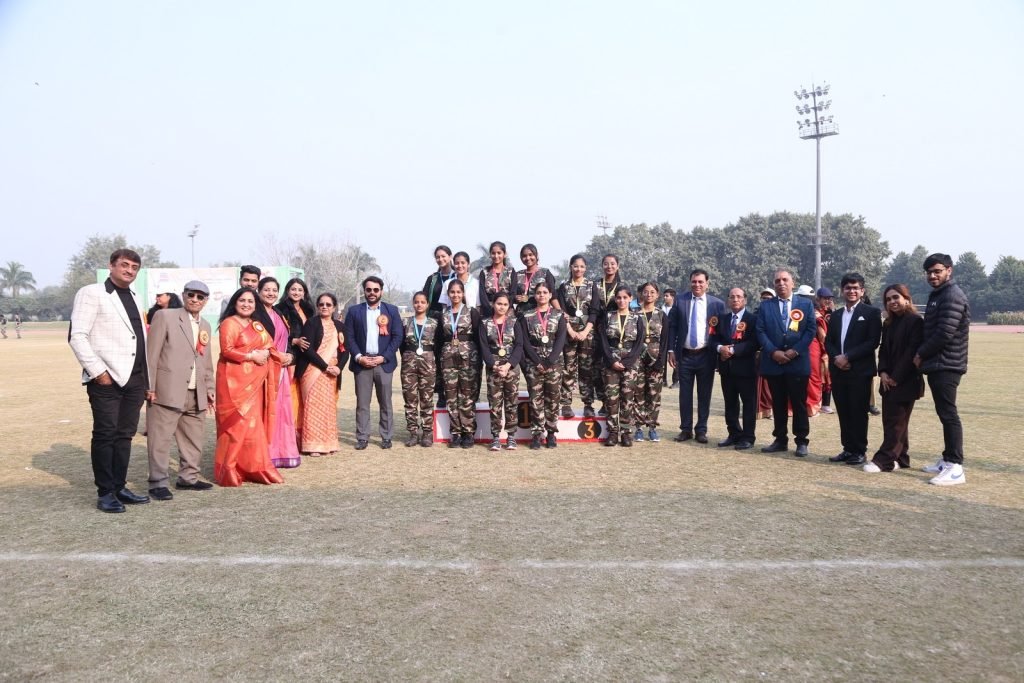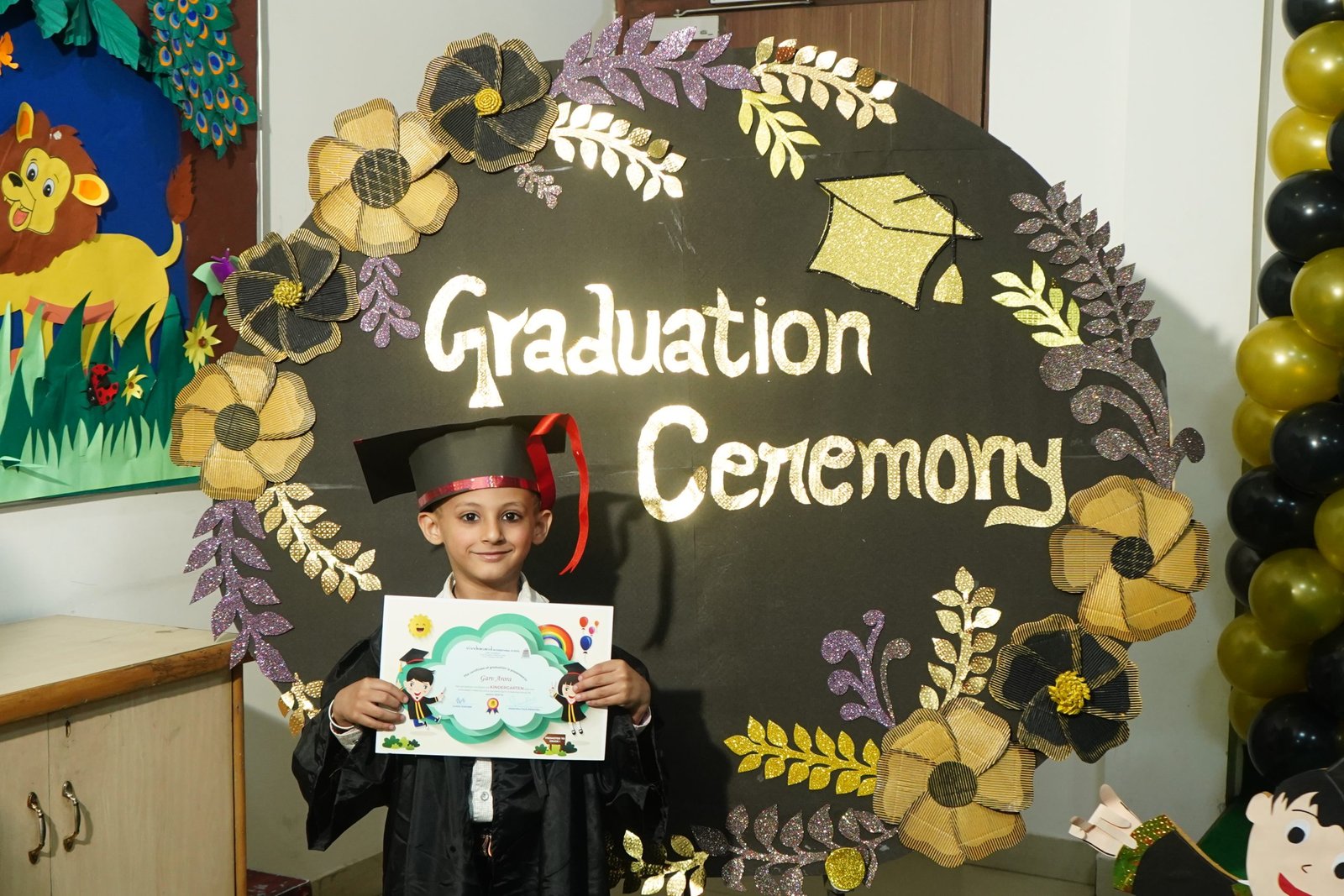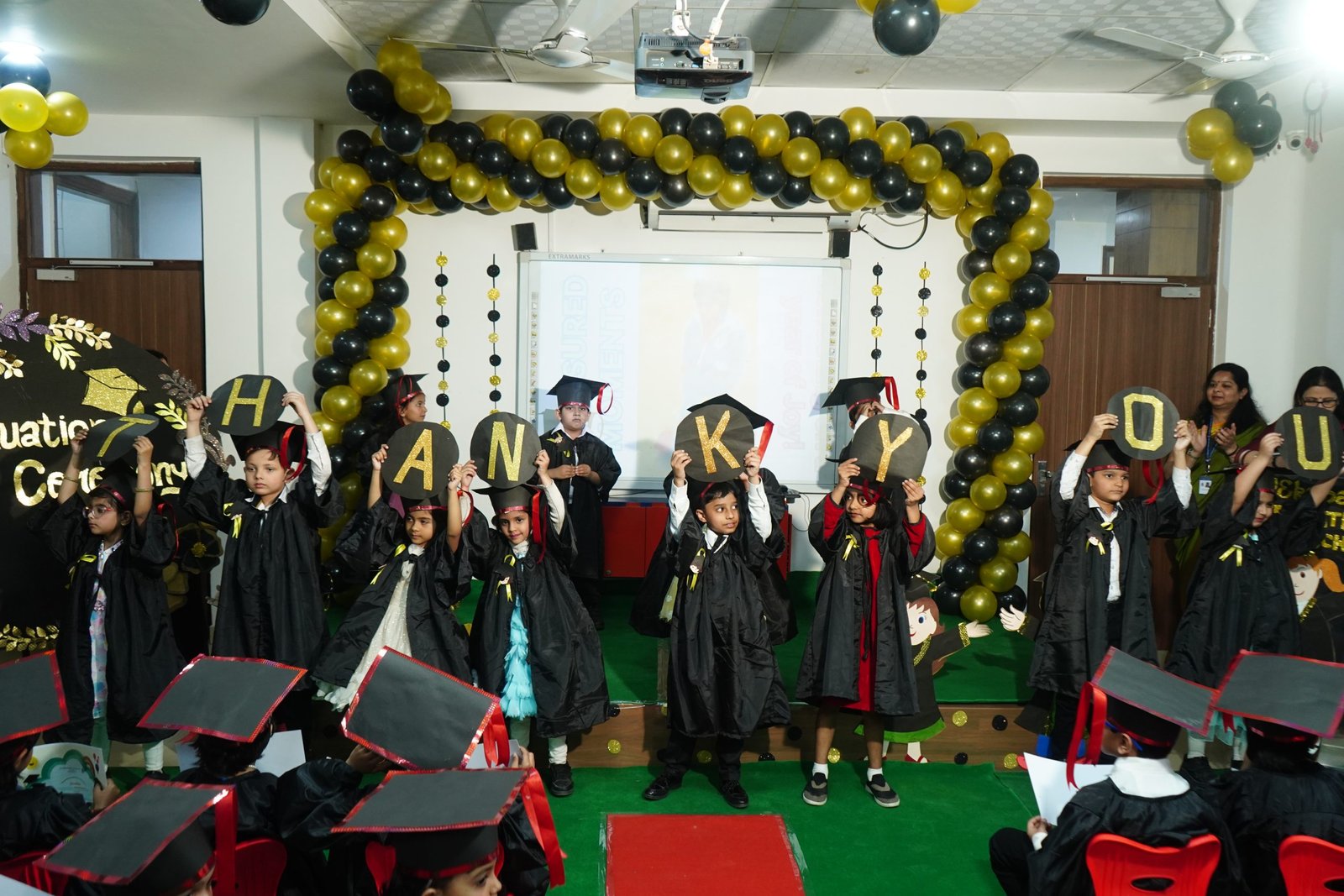Nursery Level
The aim of the Nursery Level Programme is to create a joyous learning space for children to feel comfortable in with themselves and their new environment.
We at VIS, believe in engaging students in activities that allow them to learn through direct experience, like sensory play, arts and crafts, and interactive games. Emphasis is laid on play, where children explore concepts like colors, shapes, numbers, and letters in a fun and natural way.
These experiential units enable learning which provides scope for integration of language, science, social science, music and movement, free from boundaries of isolated subjects. Nature Exploration, where outdoor activities like gardening, nature walks, or observing animals, fosters curiosity and an understanding of the natural world among children.
Sensory Experiences offer rich experiences such as playing with water, sand, textures, and sounds to enhance cognitive and emotional development. Creative Expression at this stage is centred on developing tactile skills and improving emotional and social awareness, precursors to later growth and choices. We integrate activities where children express emotions, understand themselves, and build positive relationships with peers and teachers. These activities not only help children understand their emotions and express them healthily, but they also foster a supportive, communicative environment where positive, empathetic relationships can develop between children, peers, and teachers.
Primary Level
The early years of education play a crucial role in shaping a child’s understanding of the world, building social and emotional skills, and fostering a love for learning. The approach to teaching and assessment at this stage is designed to be engaging, interactive, and supportive, emphasizing hands-on experiences and holistic growth. At the primary level, learning is primarily focused on developing basic skills in literacy, numeracy, and social interaction. Teachers introduce students to fundamental concepts that will serve as building blocks for more advanced learning in later years. The emphasis is on creating a positive and encouraging learning environment where children feel safe to explore, ask questions, and make mistakes
Learning at this stage is often child-centered, with an emphasis on active participation and experiential activities. Subjects like language arts, mathematics, science, and social studies are introduced in an integrated way, often through thematic lessons that connect different areas of learning.

Assessment at the primary level is designed to be supportive, guiding students toward continuous improvement. Teachers often use a combination of observational assessments, portfolios, checklists, and student self-assessments to gauge a child’s development.
In addition to formative assessments, where feedback is provided regularly to guide students’ growth, some summative assessments—like quizzes or small group projects— are used to evaluate understanding at the end of a learning unit. However, these assessments are generally low-pressure and meant to give teachers insight into areas that might need further reinforcement. Teachers aim to foster curiosity and a love for learning through varied teaching strategies that meet the needs of all learners. Primary educators frequently use handson, interactive activities to help students learn by doing. Whether through games, experiments, or collaborative group work, students are encouraged to actively engage with the material, which helps to solidify their understanding. The focus of learning, assessment, and teaching methodologies at the primary level is centered around nurturing the whole child—academically, socially, and emotionally. The goal is to create a rich, supportive learning environment that fosters curiosity, creativity, and a love for learning. Teaching is dynamic and adaptable, ensuring that each child’s individual needs are met. Assessment is ongoing and holistic, designed to track not only academic progress but also personal development. By employing a variety of teaching methods, primary education provides students with the foundation they need to succeed in later years of schooling and beyond.

Middle Level
The years represent a pivotal stage in a child’s academic and personal development. During this period, students are no longer just absorbing facts—they are learning to think critically, solve problems, and engage with concepts at a deeper level. The way learning and education occur during these years is multifaceted, encompassing academic, social, emotional, and cognitive growth. This essay explores how education unfolds across these dimensions in grades 6–8, examining how learning occurs in each area and how the various types of learning interconnect.
In middle school, projects are a central feature of the curriculum. These long-term, interdisciplinary projects encourage students to research, collaborate, and apply their knowledge to real-world problems. For example, students might work on a project about environmental sustainability, creating presentations or models that showcase their understanding of science, geography, and social responsibility.
We encourage field trips and outdoor learning experiences that allow students to connect their classroom knowledge to the world beyond. Visits to museums, historical sites, or natural environments help solidify abstract concepts and make learning more tangible. These experiences promote curiosity and an appreciation for learning that extends beyond the textbook.
With the increasing availability of digital tools, technology plays a significant role in middle school education. From interactive learning platforms to research databases, students use technology to explore subjects in depth, collaborate on projects, and develop digital literacy skills. Technology also supports differentiated learning, offering personalized educational experiences that meet individual needs.
Middle school is a time when students can either develop a fixed or growth mindset. We at VIS, believe in encouraging perseverance, celebrating effort, and viewing mistakes as learning opportunities can help students adopt a growth mindset, which is crucial for overcoming academic challenges and developing resilience.
By fostering critical thinking, emotional intelligence, and independence, educators at VIS help prepare students not just for high school, but for a lifetime of learning, growth, and personal development.
Senior Level
At the senior level of education, the focus of learning and assessment shifts significantly towards fostering independent thinking, deeper understanding, and the development of skills necessary for both higher education and the workforce. This stage of learning emphasizes critical analysis, problem-solving, and the application of knowledge in complex, real-world scenarios.
At the senior level, students are expected to take more responsibility for their learning. The curriculum becomes more specialized, often allowing for subject choices that align with personal interests and future career aspirations. This phase aims not just to cover facts and concepts, but to encourage students to engage with the material on a more profound level. At VIS, learning is not only about acquiring knowledge but also about developing skills such as research, time management, collaboration, and self-regulation.

Our teachers encourage inquiry-based learning, where students are encouraged to ask questions, explore ideas, and challenge existing paradigms. This active involvement in learning nurtures a sense of curiosity and intellectual autonomy, essential traits for success in both further education and professional environments. Moreover, there is a stronger emphasis on developing skills that enable students to adapt to various challenges—skills such as critical thinking, creative problem-solving, and effective communication.
Assessment at the senior level becomes more diverse and holistic. Rather than relying solely on traditional tests and exams, assessments often incorporate a variety of formats designed to evaluate both the depth of knowledge and the application of learning. These may include essays, projects, presentations, peer assessments, and portfolios, all of which allow students to demonstrate their understanding and skills in different ways.
Moreover, assessment at the senior level tends to place a greater emphasis on formative feedback. This allows students to learn from their mistakes and refine their work continuously, rather than being judged solely on a final product. The goal is not only to assess what students know but also to guide them in their ongoing learning journey.
In conclusion, the focus of learning and assessment at the senior level is centered on preparing students for the next phase of their academic and professional lives. It aims to cultivate critical thinking, creativity, and independent learning, while assessments are designed to evaluate the full spectrum of student abilities, from knowledge retention to real-world problem-solving. This shift marks an important transition from passive learning to an active, self-directed process that empowers students to take charge of their education and future.


